Con la nuova newsletter, Brandon Sanderson ci aggiorna sullo svolgimento dell’ultimo lavoro, e ci avvisa di eccitanti novità.
Ci ricorda intanto che è aperta la pagina di Kickstater dove potrete acquistare una delle edizioni in numero limitato della lussuosa edizione in pelle de La Via dei Re (in inglese). The Way of Kings – Leatherbound edition – Kickstarter , tuttavia consiglia caldamente di provare il nuovo Quiz per capire il tuo ordine nei Cavalieri Radiosi .
Anticipo tuttavia per i più curiosi, che il prezzo minimo (con spese di spedizioni incluse) per aggiudicarsi una copia (delle 4000) della lussuosa edizione, autografata e senza gadget viene a costare 227 euro. Cifre maggiori per le categorie superiori.

In aggiunta ai vari set, sarà presente un libricino esclusivo, The Way of Kings Prime, ovvero una prima bozza del romanzo che sarebbe stato La Via dei Re, che essenzialmente è la storia ambientata in un universo parallelo, ma se siete curiosi non temete… l’ebook è stato pubblicato in forma completamente gratuita sul sito, qui.

Infine, ci comunica che nel fine settimana completerà il quarto libro delle Cronache della Folgoluce, e che presto Tor inizierà la distribuzione dei capitoli gratuiti (che tra l’altro, verranno commentati su reddit dalla fanbase internazionale). In ogni caso, ci terrà aggiornato attraverso i vari social media. Ricordiamo che la rivelazione del nuovo artwork per la copertina americana è prevista per Agosto, in coda con la copertina già rivelata dell’edizione polacca e inglese.
I prossimi lavori di Sanderson saranno: il nuovo racconto dedicato alle Cronache della Folgoluce, il terzo (ed ultimo) capitolo di Skyward ed infine il quarto capitolo della serie dedicata a Wax & Wayne.
Per i lettori in inglese, usciranno nelle versioni economiche di Legion a fine mese, con delle nuove copertine.
Inoltre, i fan più accaniti potrebbero trovare interessanti questi link:
Dialogo tra Christopher Paolini e Brandon Sanderson
Video-Approfondimento sulle nuove edizioni speciali de La Via dei Re
Bene, vi lascio il nuovo estratto esclusivo. Mi raccomando, commentate sulla nostra pagina facebook e condividete con i vostri amici.
Sylphrena’s Interlude
Sylphrena felt the energy of the approaching highstorm like one might hear the sound of a distant musician walking ever closer. Calling out with friendly music.
She zipped through the halls of Urithiru. She was invisible to almost everyone but those she chose—and today she chose the children. They never seemed suspicious of her. They always smiled when they saw her. They also rarely acted too respectful. Despite what she told Kaladin, she didn’t always want people to treat her like a little deity.
Unfortunately, this early, there weren’t a lot of people—children or not—out in the tower. Kaladin was still asleep, but she liked that he slept a little better now.
She heard noises from a particular doorway, so she went that direction, darting into the room to find Rock’s daughter cooking. The others called her Cord, but her real name—Hualinam’lunanaki’akilu—was much prettier. It was a poem about a wedding band.
Cord deserved such a pretty name. She looked so different from the Alethi. More solid, a person who wouldn’t be blown over by a storm, as if she were made of bronze—a shade subtly reflected by her skin tone. And that beautiful red hair was different from Shallan’s. Cord’s was more rusty, darker and deeper; she wore it in a tail, tied with a ribbon.
She saw Syl of course; she had inherited her father’s blessing of being able to see all spren. She paused, head bowed, and touched one shoulder, then the other, then her forehead. She separated out the next slices of tuber she cut and set them in a neat pile on the counter: an offering for Syl. That was silly, since Syl didn’t eat. She turned into a tuber anyway and rolled around on the counter to say thanks.
That music though. The storm. She could hardly contain herself. It was coming!
She rolled off the counter and zipped over to examine Cord’s Shardplate stacked neatly in the corner. The young Horneater woman was never without it. She was the first of her people in…well, a very, very long time to have a Shard.
It was pretty. Maybe Syl should have hated it, as she did Shardblades, but she didn’t. It was kind of a corpse—well, lots of corpses—but not as offensive. The difference, she supposed, was attitude. She could sense contentment, not pain, from the Plate.
Cord began making noise with her pot, and Syl found herself darting that direction to watch what was being dumped into the water. Sometimes Syl felt like she had two brains. One was the responsible brain; it had driven her to defy the other honorspren and her father in seeking out Kaladin and forming a Radiant bond. This was the brain that she wanted to control her. It cared about important things: people, the fate of the world, figuring out what it truly meant to be of Honor.
She had a different brain too. The brain that was fascinated by the world—the brain that acted like it belonged to a small child. A loud noise? Better go see what caused it! Music on the horizon? Dart back and forth, eager with anticipation! A strange cremling on the wall? Mimic its shape and crawl along to see what it feels like!
Thoughts bombarded her. What did it feel like to be a tuber being cut? How long had it taken Rock and Song to come up with Cord’s name? Should Syl have a name that was a poem? Maybe they had a name for her among the Horneaters. Did they have names for every spren, or just important ones?
On and on and on. She could deal with it. She always had. It wasn’t an honorspren thing though. The others weren’t like her, except maybe Rua.
Puffs of steam rose from the cookpot, and Syl became the same shape: a puff of steam rising toward the ceiling. When that got boring—it took only a few seconds—she soared up into the air to listen to the music. The storm wasn’t near enough yet. She wouldn’t be able to see it.
Still, she zipped out onto the balcony and flitted along the outside of the tower, searching for Kaladin’s room.
The tower was dead. She barely remembered the place from before, when she’d bonded her old wonderful knight. He’d spent most of his life traveling to little villages, using her as a Shardblade to cut cisterns or aqueducts for the people. She remembered coming to Urithiru with him once…and the tower had been bright with lights… A strange kind of light…
She stopped in the air, realizing she’d flown up seventeen stories. Silly spren. Don’t let the child be in charge. She darted down and found Kaladin’s window, then squeezed between the shutters, which had just enough space between them for her to enter.
In the dark room beyond, he slept. She didn’t need to come look to know that. She’d have felt if he’d woken. But…
He has two brains too, she thought. A light brain and a dark brain. She wished she could understand him. He needed help. Maybe this new duty would be all he needed. She so profoundly hoped that it would. But she worried it wouldn’t be enough.
He needed her help, and she couldn’t give it. She couldn’t understand.
The storm! The storm was here.
She slipped back outside, though the responsible brain managed to keep her attention. Kaladin. She needed to help Kaladin. Perhaps he would be satisfied as a surgeon, and it would be good for him to not have to kill anymore. However, there was a reason he’d had difficulties as a surgeon in the past. He would continue to have the dark brain. This wasn’t a solution. She needed a solution.
She kept hold of that idea, not letting it evaporate like steam above a cauldron. She held to it even as the stormwall hit, washing around the base of the tower from the east. Hundreds of windspren flew before it in a multitude of shapes. She joined them, laughing and becoming like them. She loved her little cousins for their joy, their simple excitement.
As always, small thoughts bombarded her as she flew between them, waving, smiling, changing shapes repeatedly from one moment to the next. Honorspren—all of the intelligent spren—were something new to Roshar. Well, new as in ten-thousand-years-old new. So…newer.
How had the first honorspren—or cultivationspren, or inkspren, or peakspren, or any of the other intelligent ones—been created? Had they been shaped from raw Investiture by Honor himself? Had they grown out of these, their cousins? She felt so much kinship with them, though they were clearly different. Not as smart. Could she help them become smart?
These were heavy thoughts when she just wanted to soar. The music, the cataclysm of the storm was…strangely peaceful. She often had trouble in a room full of talking people, whether they were humans or spren. She would be intrigued by every conversation, her attention diverted constantly.
One might have thought the storm would be the same way, but it wasn’t loudness that bothered her—it was a diversity of loudnesses. The storm was a single voice. A majestic, powerful voice singing a song with its own harmonies. In here she could simply enjoy the song and relax, renewed.
She sang with the thunder. She danced with the lightning. She became debris and let herself be pushed along. She zipped into the inmost, darkest part of the storm, and she became its heartbeat. Light-thunder. Light-thunder. Light-thunder.
Then blackness took her. A fuller blackness than the absence of light. It was the split moment that her father could create. Time was a funny thing. It was always flowing along in the background like a river, but bring too much power to bear, and it warped. It slowed; it wanted to pause and take a look. Anytime too much power—too much Investiture, too much self—congregated, realms became porous and time behaved oddly.
He didn’t need to make a face in the sky for her as he did for mortals. She could feel his attention like the sun’s own heat.
CHILD. REBELLIOUS CHILD. YOU HAVE COME TO ME WISHING.
“I want to understand him,” Syl said, revealing the thought she’d been holding—protecting—and sheltering. “Will you make me feel the darkness he does, so I can understand it? I can help him better if I know him better.”
YOU GIVE TOO MUCH OF YOURSELF TO THAT HUMAN.
“Isn’t that why we exist?”
- YOU HAVE ALWAYS MISUNDERSTOOD THIS. YOU DO NOT EXIST FOR THEM. YOU EXIST FOR YOU. YOU EXIST TO CHOOSE.
“And do you exist for you, Father?” she demanded, standing in blackness—insisting on holding her human form. She stared up at the deep eternity. “You never make choices. You merely blow as you always do.”
I AM BUT THE STORM. YOU ARE MORE.
“You avoid responsibility,” she said. “You claim you do only what a storm must, but then act like I’m somehow wrong for doing what I feel I must! You tell me I can make choices, then berate me when I make ones you do not like.”
YOU REFUSE TO ADMIT THAT YOU ARE MORE THAN AN APPENDAGE TO A HUMAN. SPREN ONCE LET THEMSELVES BECOME CONSUMED BY THE NEEDS OF THE RADIANTS, AND THAT KILLED THEM. NOW, MANY OF MY CHILDREN HAVE FOLLOWED YOUR FOOLISH PATH, AND ARE IN GREAT DANGER.
THIS IS OUR WORLD. IT BELONGS TO THE SPREN.
“It belongs to everyone,” Syl said. “Spren, humans, even the singers. So we need to figure out how to live together.”
THE ENEMY WILL NOT ALLOW IT.
“The enemy is going to be defeated by Dalinar Kholin,” Syl said. “And so we need to have his champion ready.”
YOU ARE SO CERTAIN THAT YOUR HUMAN IS THE CHAMPION, the Stormfather said. I DO NOT THINK THE WORLD WILL BEND TO YOUR WISHES.
“Regardless, I need to understand him so I can help him,” Syl said. “Not because I’m going to be consumed by his desires, but because this is what I want to do. So I ask again. Will you make me capable of feeling what he does?”
I CANNOT DO THIS THING, the Stormfather said. YOUR WISHES ARE NOT EVIL, SYLPHRENA, BUT THEY ARE DANGEROUS.
“You cannot? Or you will not?”
I HAVE THE POWER, BUT NOT THE ABILITY.
The time between ended abruptly, dumping her back into the storm. Windspren spiraled around her, laughing and calling, mimicking the words, “You cannot, you cannot, you cannot!” Insufferable things. As bad as she was sometimes.
Syl kept hold of the idea, cradling it, then let herself be otherwise distracted by the storm. She danced for its entire passing, though she couldn’t leave with it. She needed to stay within a few miles of Kaladin, or her Connection to the Physical Realm would start to fade, and her mind would weaken.
She enjoyed this time, an hour passing in moments. When the riddens finally approached, she stopped in eager anticipation, overjoyed. Up here in the mountains, the end of the storm made snow. By now, the storm had dropped all its crem-laced water, so the snow was white and pure. Each snowflake was so magnificent! She wished she could talk to objects like Shallan did, and hear each one’s story.
She fell with the flakes, imitating them—and creating patterns unique to her. She could be herself, not only live for some human. The thing was, Kaladin wasn’t just some human. She’d picked him deliberately out of millions and millions. Her job was to help him. As powerful a duty as the Stormfather’s duty to drop water and crem to give life to Roshar.
She soared back toward Urithiru, weaving between snowbanks, then shooting upward. This section to the west of the tower included deep valleys and frosted peaks. She dove through the former and crested the latter before looping around in circles outside the magnificent tower.
She eventually reached the Bondsmith’s balcony. Dalinar was always awake for highstorms, regardless of the hour. She landed on his balcony where he stood in the cold. The rock just below him was slick with water; today the highstorm had been high enough to cover the lower stories of the tower. She’d never seen it get to the top, but she hoped it would someday. That would be different!
She made herself visible to Dalinar, but he didn’t jump as humans sometimes did when she appeared. She didn’t understand why they did that—weren’t they used to spren fading in and out all the time around them? Humans were like storms, magnets for all kinds of spren.
They seemed to find her more disturbing than a gloryspren. She supposed she’d take that as a compliment.
“Did you enjoy your storm, Ancient Daughter?” Dalinar asked.
“I enjoyed our storm,” she said. “Though Kaladin slept through the entire thing, the big lug.”
“Good. He needs more rest.”
She took a step toward Dalinar. “Thank you for what you did. In forcing him to change. He was stuck, doing what he felt he had to, but getting darker all the time.”
“Part of a commander’s job is to watch for the signs.”
“He’s different, isn’t he?” Syl said. “Worse, because his own mind fights against him.”
“Different, yes,” Dalinar said, leaning on the railing next to her. “But who is to say what is worse or better? We each have our own Voidbringers to slay, Brightness Sylphrena. No man can judge another man’s heart or trials, for no man can truly know them.”
“I want to try,” she said. “The Stormfather implied there was a way. Can you make me understand Kaladin’s emotions? Can you make me feel what he’s going through?”
“I have no idea how to accomplish something like that,” Dalinar said.
“He and I have a bond,” she said. “You should be able to use your powers to enhance that bond, strengthen it.”
Dalinar clasped his hands on the stonework before him. He didn’t object to her request—he wasn’t the type to reject any idea out of hand.
“What do you know of my powers?” Dalinar asked her.
“Your abilities are what made the original Oathpact,” she said. “And they existed—and were named—long before the Knights Radiant were founded. A Bondsmith connected the Heralds to Braize, made them immortal, and locked our enemies away. A Bondsmith bound other Surges and brought humans to Roshar, fleeing their dying world. A Bondsmith created—or at least discovered—the Nahel bond: the ability of spren and humans to join together into something better. You Connect things, Dalinar. Realms. Ideas. People.”
He surveyed the frosted landscape, freshly painted with snow. She thought she knew his answer already, from the way he took a breath and set his jaw before speaking.
“Even if I could do this,” he said, “it would not be right.”
She became a small pile of leaves, disintegrating and stirring in the wind. “Then I’ll never be able to help him.”
“You can help without knowing exactly what he’s feeling. You can be available for him to lean on.”
“I try. Sometimes he doesn’t seem to want even me.”
“That’s likely when he needs you most. We can never know another man’s heart, Brightness Sylphrena, but we all know what it is to live and have pain. That is the advice I’d have given to another. I do not know if it applies to you.”
Syl looked upward, along the tower’s pointing finger, raised toward the sky. “I…had another knight once. We came here to the tower, when it was alive—though I don’t fully remember what that meant. I lost memories during the…pain.”
“What pain?” Dalinar asked. “What pain does a spren feel?”
“He died. My knight, Relador. He went to fight, despite his age. He shouldn’t have, and when he was killed, it hurt. I felt alone. So alone that I started to drift…”
Dalinar nodded. “I suspect that Kaladin feels something similar, though from what I’ve been told about his ailment, it doesn’t have a specific cause. He will sometimes start to…drift, as you put it.”
“The dark brain,” she said.
“An apt designation.”
Maybe I can already understand Kaladin, she thought. I had a dark brain of my own, for a while.
She had to remember what that had been like. She realized that her responsible brain and her child’s brain aligned in trying hard to forget that part of her life. But Syl was in control, not either of those brains. And maybe, if she remembered how she’d felt during those old dark days, she could help Kaladin with his current dark days.
“Thank you,” she said to Dalinar as a group of windspren passed. She regarded them, and for once didn’t particularly feel like giving chase. “I think you have helped.”
Brandon Sanderson (dalla newsletter)










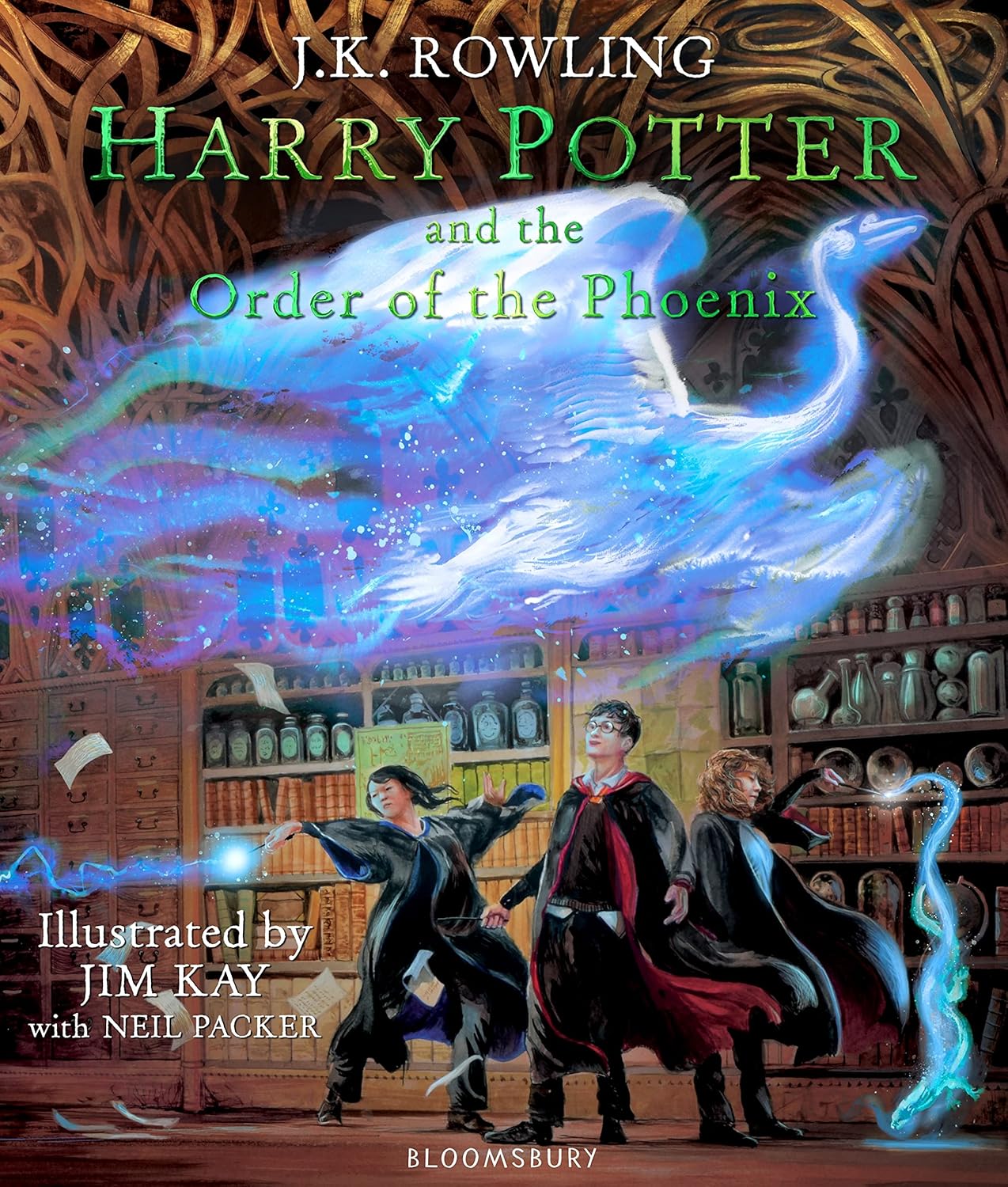









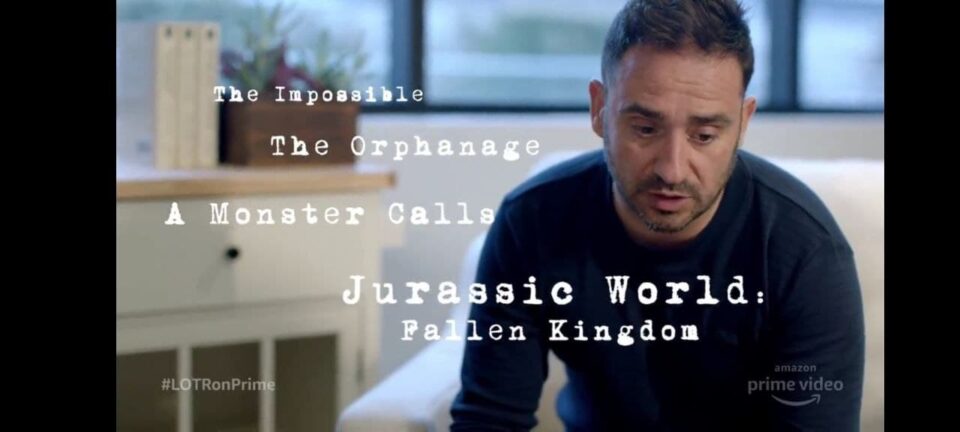
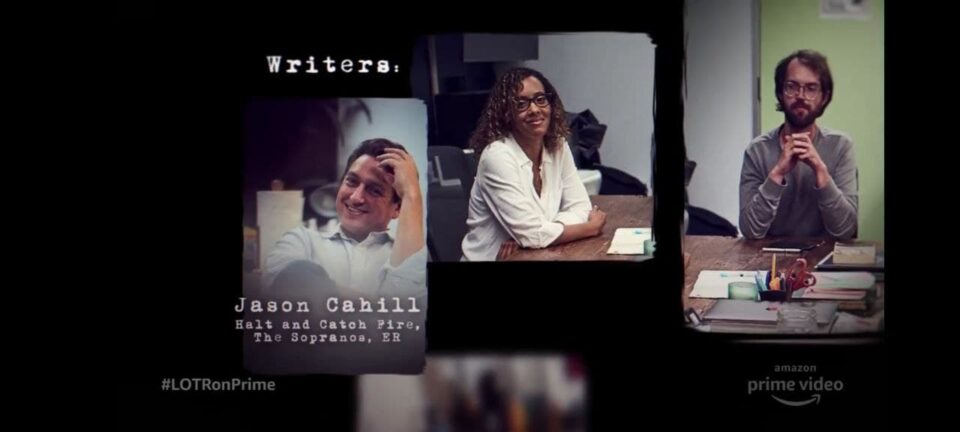
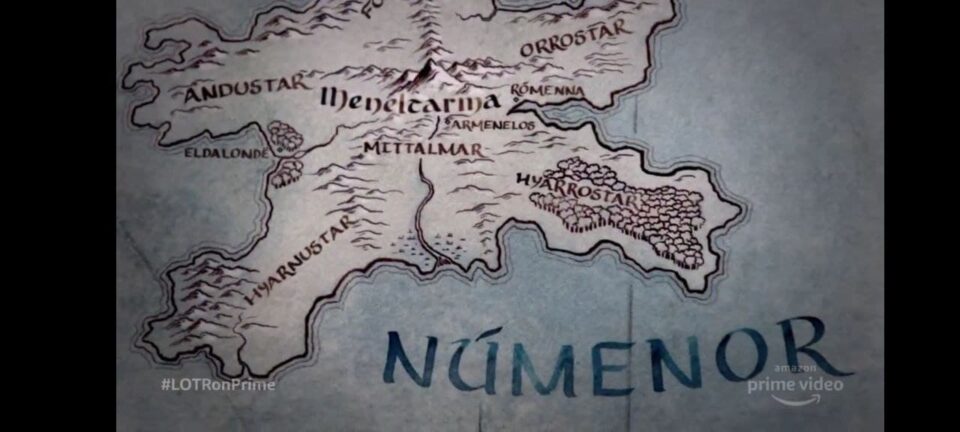


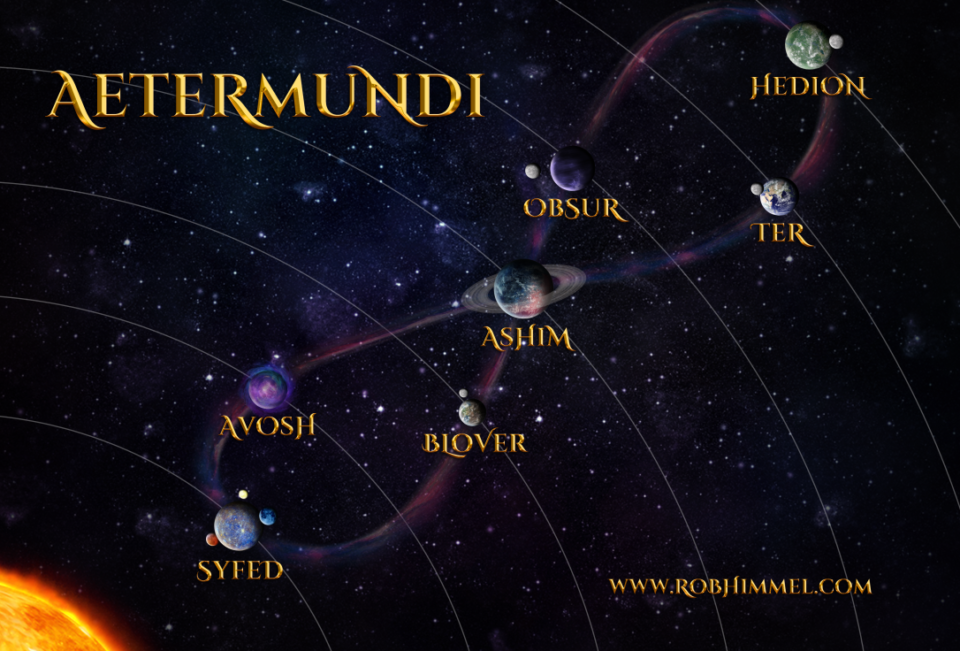












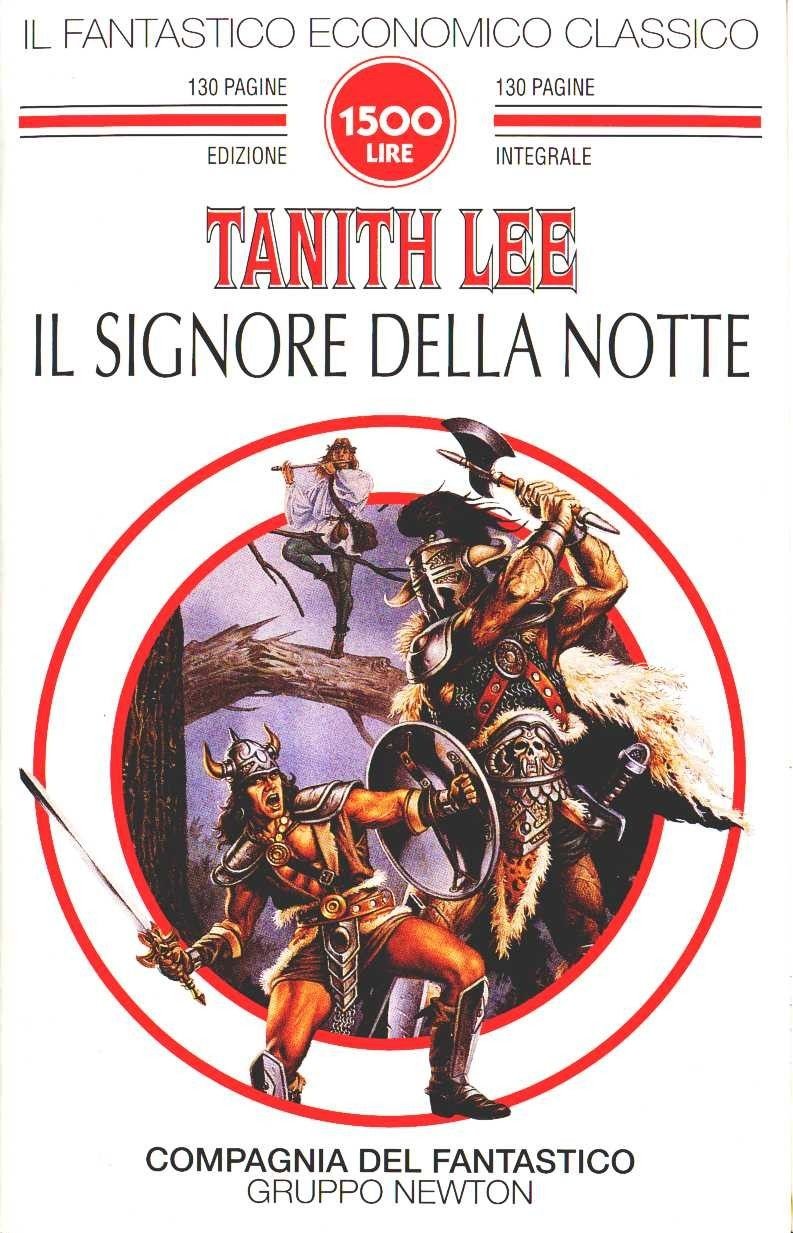





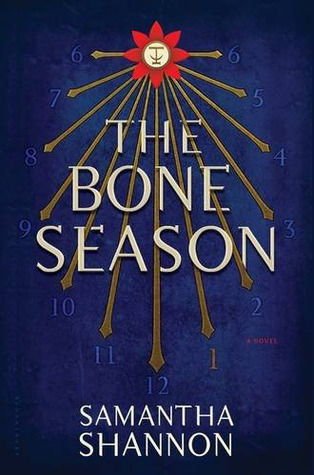

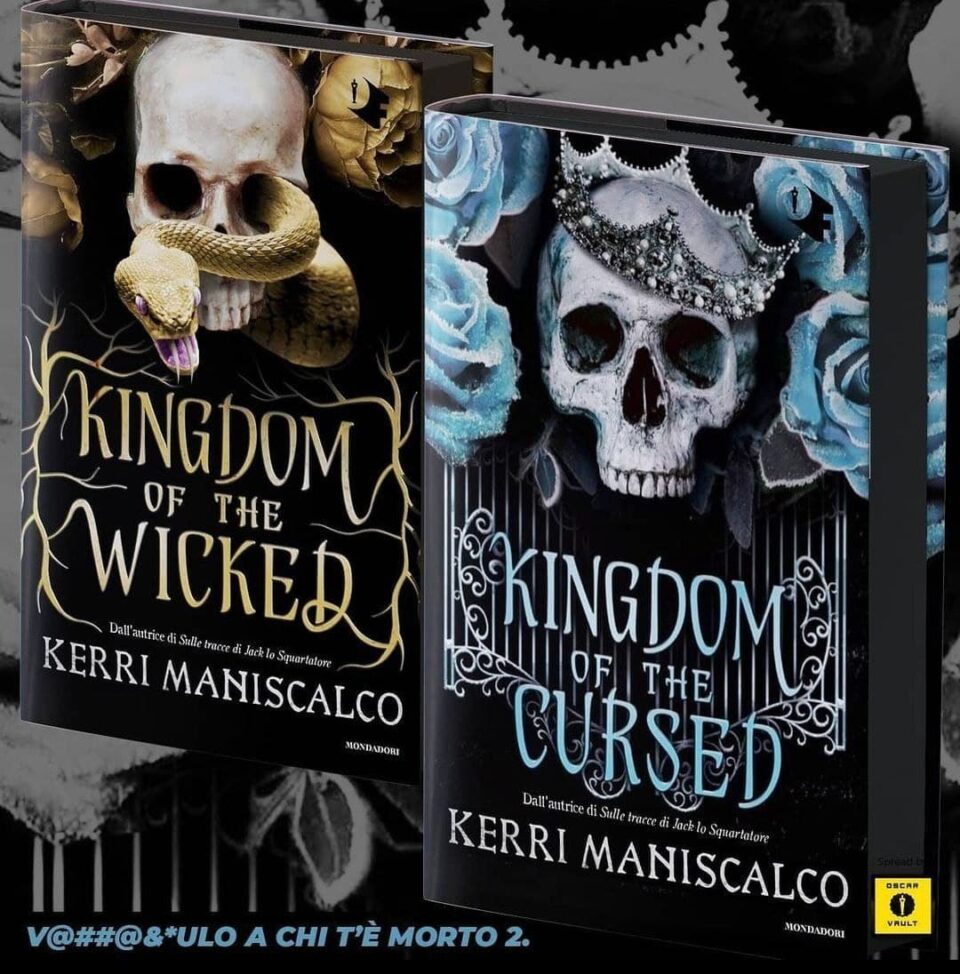




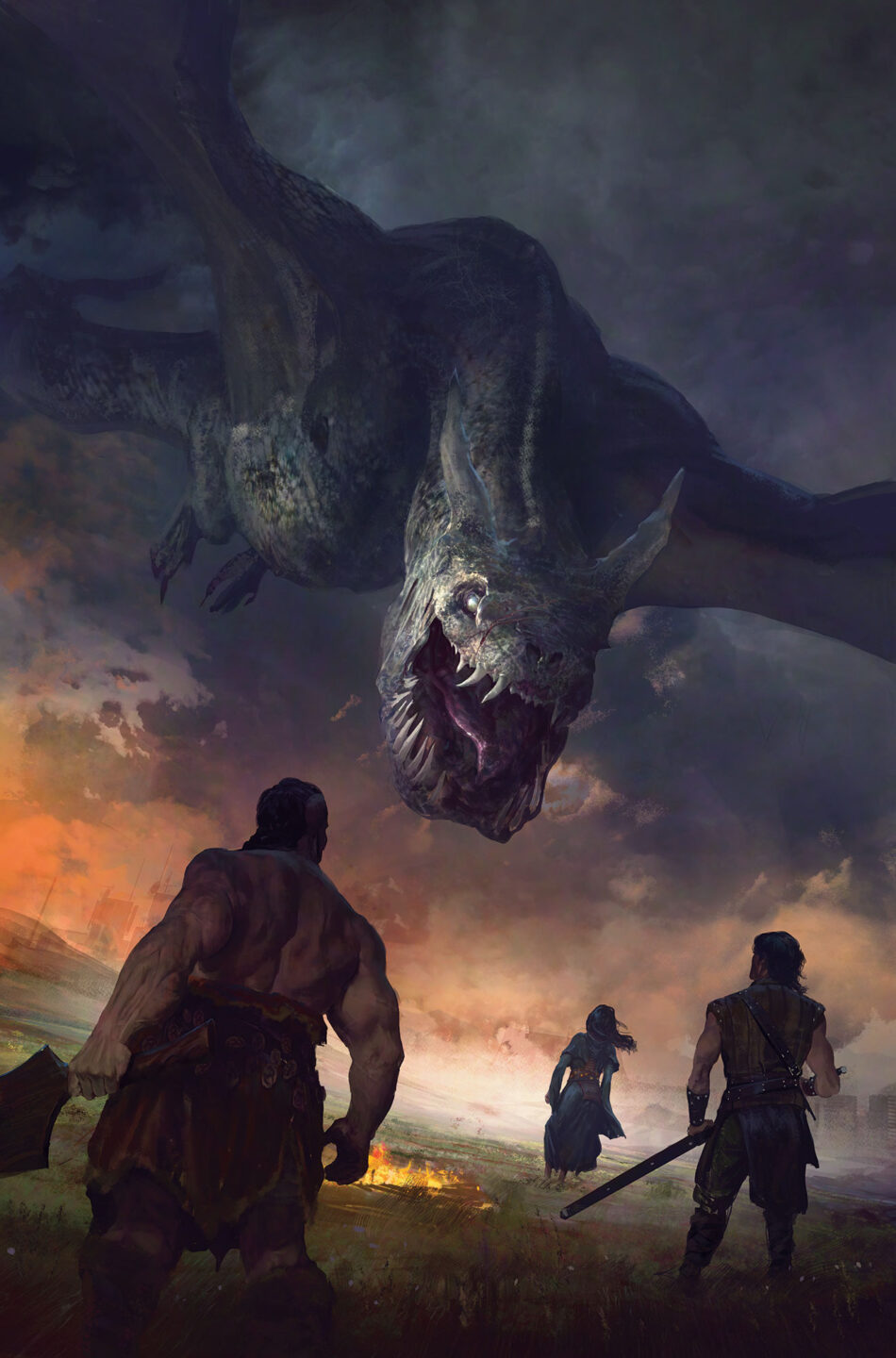



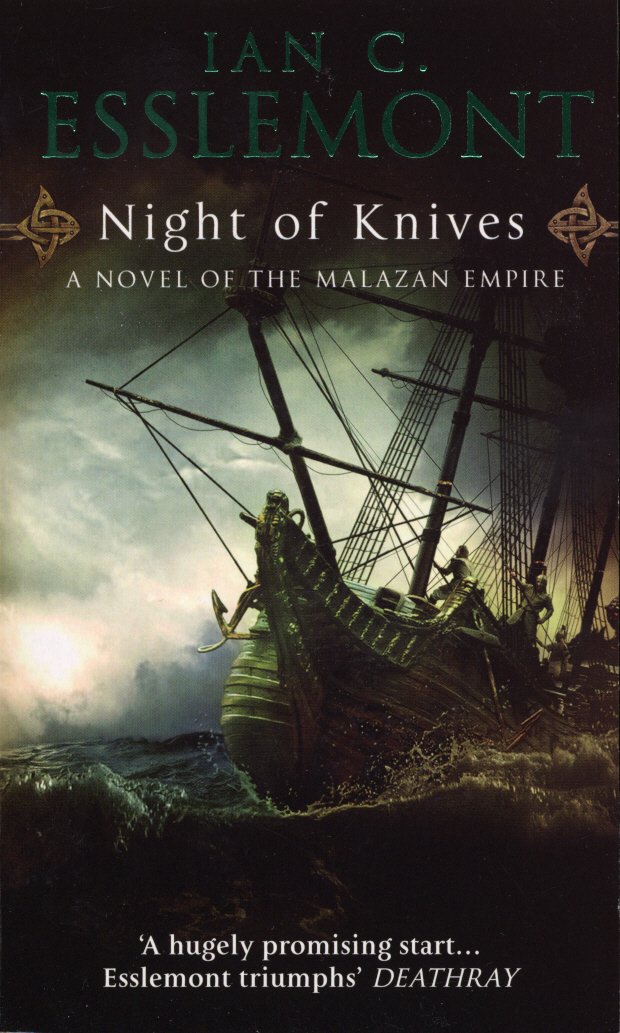
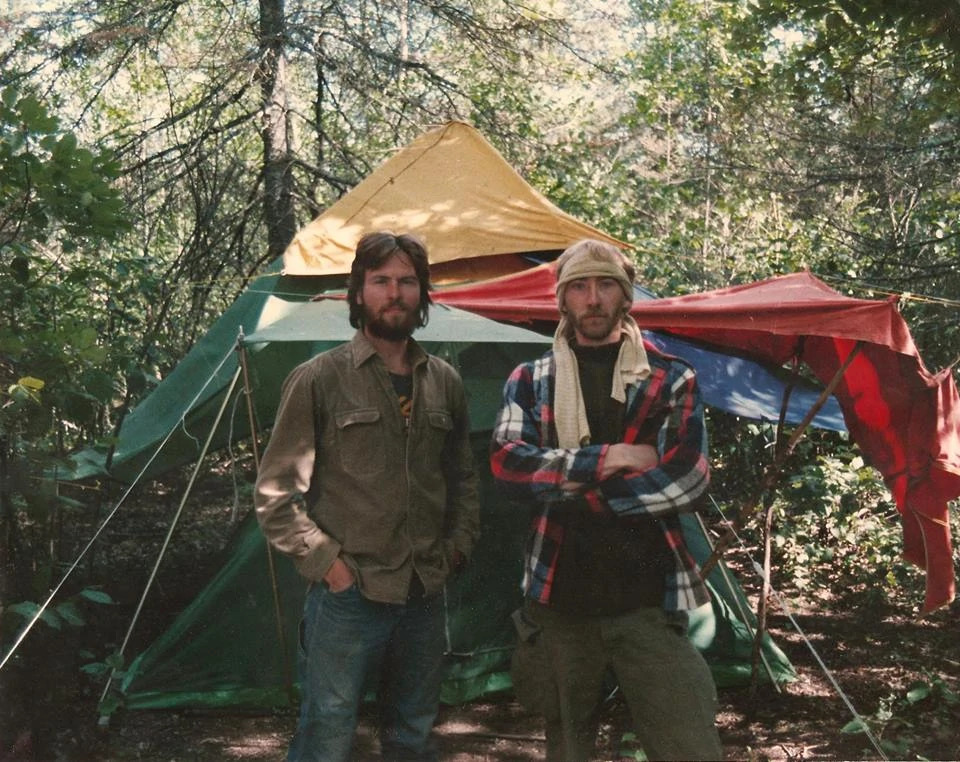














 Sì e no. Alla Fanucci va riconosciuto il grandissimo merito di fare frequenti promozioni sugli ebook grazie alle quali con 14€ ci si porta a casa l’intera serie (99cents a volume). A prescindere dalle vostre preferenze, gli ebook sono il compromesso ideale tra economia domestica ed acquisto a scatola chiusa. Si spende tanto solo se si è fissati col cartaceo.
Sì e no. Alla Fanucci va riconosciuto il grandissimo merito di fare frequenti promozioni sugli ebook grazie alle quali con 14€ ci si porta a casa l’intera serie (99cents a volume). A prescindere dalle vostre preferenze, gli ebook sono il compromesso ideale tra economia domestica ed acquisto a scatola chiusa. Si spende tanto solo se si è fissati col cartaceo. 




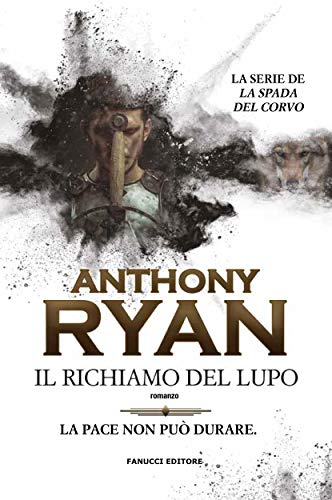



 Un fantasy esotico atipico, ambientato in un Egitto del diciottesimo secolo. È uno dei fantasy più acclamati degli ultimi anni, con recensioni miste ma prevalentemente buone con apprezzamenti per la componente islamica presente, un buon world building e una trama molto densa.
Un fantasy esotico atipico, ambientato in un Egitto del diciottesimo secolo. È uno dei fantasy più acclamati degli ultimi anni, con recensioni miste ma prevalentemente buone con apprezzamenti per la componente islamica presente, un buon world building e una trama molto densa.
 Si tratta di uno dei più importanti esponenti del proto-fantasy, uno dei pilastri pre-Tolkien, finalmente con una raccolta che comprende una selezione delle sue opere principali, tra cui due raccolte e due romanzi integrali. È un must have per gli appassionati del fantasy vintage.
Si tratta di uno dei più importanti esponenti del proto-fantasy, uno dei pilastri pre-Tolkien, finalmente con una raccolta che comprende una selezione delle sue opere principali, tra cui due raccolte e due romanzi integrali. È un must have per gli appassionati del fantasy vintage. Il ciclo fantascientifico per eccellenza, un altro must read del genere, in questa edizione completa di tutti i volumi della saga. Con una grafica moderna, a tratti minimal e ROSA, va ad aggiungersi alla collana “Oscar Draghi”.
Il ciclo fantascientifico per eccellenza, un altro must read del genere, in questa edizione completa di tutti i volumi della saga. Con una grafica moderna, a tratti minimal e ROSA, va ad aggiungersi alla collana “Oscar Draghi”.





 Kiki, storia triste alle spalle, è una giovane prostituta che vive e lavora nell’area Sud 5. Conosce bene le regole del suo mondo, ha imparato a difendersi e non ha paura di uccidere. Mossa dalla volontà di cambiare e dare una svolta alla sua vita, emblema di una speranza dura a morire, accetterà l’impiego lavorativo offertole da Big Blue, famigerato capo malavitoso che gestisce dall’alto le attività dell’intero distretto. Questa scelta la porterà a conoscere altre assassine, in particolare Black Mamba e Yuki, due donne dal passato fosco e doloroso. La missione che dovranno portare a termine farà cadere Kiki e le sue compagne in una spirale di morte, violenza e sangue.
Kiki, storia triste alle spalle, è una giovane prostituta che vive e lavora nell’area Sud 5. Conosce bene le regole del suo mondo, ha imparato a difendersi e non ha paura di uccidere. Mossa dalla volontà di cambiare e dare una svolta alla sua vita, emblema di una speranza dura a morire, accetterà l’impiego lavorativo offertole da Big Blue, famigerato capo malavitoso che gestisce dall’alto le attività dell’intero distretto. Questa scelta la porterà a conoscere altre assassine, in particolare Black Mamba e Yuki, due donne dal passato fosco e doloroso. La missione che dovranno portare a termine farà cadere Kiki e le sue compagne in una spirale di morte, violenza e sangue.



Red Sister – Mark Lawrence | Recensione
Partiamo con una premessa. Se mi avessero chiesto sei mesi fa quali fossero gli scrittori di fantasy moderno più meritevoli di essere letti e tenuti d’occhio, Mark Lawrence non sarebbe stato fra i primi tre. Probabilmente non sarebbe stato neanche fra i primi dieci.
Poi ho letto Red Sister, e ho dovuto chiedergli scusa.
Di base la trilogia di Nona Grey è proprio un prodotto di Mark Lawrence: un grimdark con elementi fantascientifici, un sacco di azione e zero smancerie. Ma anche, di base, è la storia di un’orfana che si addestra per diventare assassina in un convento gestito da suore, come nei migliori Young Adults più trasgressivi. Tutti gli ingredienti per essere una storia già vista, troppo derivativa e alla fine della fiera che si perde nel mare di libri simili che popolano il genere.
E invece Mark Lawrence regala al lettore una storia che non solo non deve nulla a nessuno, ma che nella sua improbabile accoppiata diverte molto più di quanto non cerchi di innovare a tutti i costi.
La trama
Dopo due serie con la stessa ambientazione, una Terra post-apocalittica in cui l’umanità è tornata a una società pseudo-medievale (con contorno di streghe e zombie radioattivi), questo romanzo vede un mondo completamente nuovo e fittizio: Abeth, un pianeta che sta venendo lentamente ricoperto dal ghiaccio a causa del suo sole morente, tenuto precariamente in vita da una luna-specchio che riscalda una striscia di terra.
Il wordbuilding risulta indubbiamente improbabile e a tratti semplice: nonostante vi ci si accenni, non troviamo nel primo libro grandi intrighi politici o scontri epocali, così come ci viene mostrata solo una piccola porzione di un mondo che, per cause di forza maggiore, è già di suo molto stretto. Ma proprio la sua improbabilità antiscientifica lo rende così divertente da leggere, da scoprire e da catalogare.
Lo stesso vale per la magia, molto semplice e senza regole troppo severe, ma con ottimi spunti per chi si diverte con le tassonomie, con quattro tipi di magia di origine genetica, che si possono manifestare e combinare in una persona con effetti diversi, e quattro ordini tra cui scegliere. Perché Red Sister è per la maggior parte del libro ambientato in una scuola.
A vederlo così, nei suoi elementi singoli, si potrebbe pensare di trovarsi di fronte a un classico YA senza grande originalità o innovazione. E intendiamoci: anche se non è nessuna di queste cose, Red Sister non sarà mai un libro che vi cambierà la vita. Ci sono però buone probabilità che vi ci faccia divertire un casino. Un libro che unisce i topoi “scuola magica” e “giovane apprendista assassina” per creare il topos “suore ninja che insegnano a combattere a ragazzine” ha di certo tutte le premesse per esserlo.
Bisogna inoltre tenere in inoltre in considerazione che non è solo il mondo o la presenza di una scuola o di ragazzine dettare il tono del romanzo. Se ho esordito dicendo che siamo in un grimdark ho le mie buone ragioni per farlo. Nonostante la patina divertente e scintillante, Abeth è un mondo cruento e brutale, in cui Lawrence non si risparmia la sua classica dose di violenza e brutture.
Il libro si apre (e ammetterò anche che Red Sister ha uno dei miei incipit preferiti di sempre) con un convento preso d’assedio da un esercito. Il libro si apre con una bambina che non ci crede davvero che lei, proprio lei, da lì a breve verrà impiccata. Si apre con la protagonista, Nona, che viene venduta in schiavitù dalla propria madre, per motivi non proprio chiari e di cui lei si rifiuta di parlare. Si apre in modo spettacolare, mettendo sul piatto moltissimi elementi presenti, passati e futuri e poi… rallenta. Inverte la rotta, dando più spazio ai suoi personaggi, alla loro crescita e ai loro rapporti che alle vicende, con interi capitoli dedicati alla vita di queste ragazze, alle loro giornate e alle loro lezioni. Verso la fine il ritmo torna invece serrato e la trama precipita di un vortice d’azione e colpi di scena, ma è innegabile che la parte centrale possa risultare più lenta e rarefatta a chi si aspetta invece lo stile abituale di Lawrence, molto più frenetico ma anche molto meno riflessivo.
Commento
A un livello personale, ho trovato quest’alternarsi nella trama di scene di azione e periodi più “tranquilli” di routine piacevole da seguire, dandomi l’impressione di avere la possibilità di affezionarmi di più ai personaggi e al mondo. L’obbiettivo di Lawrence non è chiaramente quello di scrivere alta letteratura, bensì di intrattenere e coinvolgere il lettore: parte semplice e pulito per poi caricarsi nei momenti di particolare tensione o importanza e drammaticità, diventando non solo più incisivo ma anche molto più memorabile. Anche quelli che normalmente sarebbero pesanti spiegoni di geografia, politica e attualità risultano coinvolgenti e piacevoli da leggere, perché vissuti in prima persona da lettore e personaggi, sfruttando il sempreverde “la protagonista nonché quasi unico punto di vista del libro è una capra ignorante che non sa leggere, scrivere o dove si trova e deve imparare a stare al mondo (possibilmente uccidendo meno gente possibile nel processo)”.
Tra l’altro è proprio Nona Grey, la protagonista, ad essere uno dei due grandi punti di forza del libro. Anche per lei vale il discorso già: se i suoi elementi possono da fuori far credere di trovarsi davanti all’ennesima eroina d’azione, leggendo ci si rende ben presto conto che non è assolutamente così. Nona è diretta, brutale e manca completamente di diplomazia. Le risulta difficile comprendere le persone, o il concetto di ipocrisia, e molto spesso non capisce i sentimenti degli altri a meno che non le vengano esplicitamente comunicati. Ma è allo stesso tempo mossa da una lealtà e un amore ferreo verso le persone che considera amiche, per cui farebbe qualsiasi sacrificio, pagherebbe qualsiasi prezzo, infrangerebbe qualsiasi regola o morale o buon senso. Niente grandi storie d’amore per ora: i rapporti nel primo libro rispecchiano l’età dei personaggi, con tutti i battibecchi, le cotte e le promesse sceme che ci si fa a dodici anni. Ma è già ben chiaro come nel corso della storia i rapporti non saranno sempre così facili, leggeri o netti, che non sempre le persone di cui fidarti sono quelle che credi e che a volte gettarsi a testa bassa nelle cose si paga.
L’altro punto di forza del libro è come i suoi i suoi temi risultino autentici, genuini. Red Sister è un libro che non deve niente a nessuno, che quello che fa lo perchè ci si diverte, in modo molto sopra le righe ma mai superficiale. In perfetto stile Lawrence, viene trattata e smontata la tematica del “prescelto”, senza che però tale decostruzione risulti statica e fine a se stessa, sempre un po’ un rischio in queste operazioni. In Red Sister non si ha mai quest’impressione, perché Lawrence il tema, e sì la smonta, ma non la distrugge né getta via, portandola invece in direzioni inaspettate. Quello di prescelto, qui, non è tanto un ruolo o un individuo, quanto un concetto, da esplorare e con cui sperimentare.
Come potrei aver accennato all’inizio, la mia esperienza con Lawrence prima d’ora non è mai stata molto piacevole. È stata lunga, frammentaria e piena più che di alti e bassi, solo dei bassi. Non l’ho mai trovato in alcun modo un cattivo scrittore, ma solo… non per me. Innanzi tutto non sono una grandissima estimatrice del grimdark. Mi metto di impegno a leggerlo unicamente quando si tratta di libri davvero meritevoli, le cui qualità vanno oltre all’appartenenza a un genere che non mi fa impazzire e inizialmente, in Lawrence non riuscivo a trovare queste qualità Di nuovo, nulla contro di lui o alle sue storie e anzi riuscivo benissimo a figurarmi perché i suoi libri avessero avuto successo e così tanti fan entusiasti. Ma su di me proprio non avevano lo stesso effetto: non riuscivano mai a prendermi, a divertirmi, a farmi finire la storia e pensare “non vedo l’ora di leggere il prossimo”. A volte anche riuscire a finire un capitolo era già un successo e ormai mi ero rassegnata ad accettare che proprio non potesse funzionare tra di noi.
Quindi insomma. Diciamo che io e Lawrence non siamo partiti col piede giusto, né abbiamo continuato col piede giusto, ed eravamo pronti a fermarci sul piede sbagliato. Invece si è rivelato uno scrittore in grado di migliorare moltissimo in pochissimo tempo (il suo primo libro, Il Principe dei Fulmini, è stato pubblicato originariamente nel 2011, mentre Red Sister è del 2017).
Ho apprezzato l’approccio che questo libro ha al grimdark molto più di quanto io non faccia di solito perché la violenza, per quanto presente, abbondante e sempre descritta con dovizia di particolari, non è mai fine a se stessa. La violenza non è mai una cosa banale, o giustificata. Impiccare i bambini o venderli viene presentato per quello che è: una cosa triste e terribile, che succede e fa parte del mondo, ma che non deve per questo venir presentata in modo compiaciuto e trasgressivo. Molto più realistico, se vogliamo, ma soprattutto con molta più incidenza sulla trama. Se le cose terribili sono trattate come tali, acquisiscono più peso, più valore, alzando la posta in gioco e l’impatto emotivo sul lettore. E quando l’autore, dopo averti fatto sentire tranquillo, placido e al sicuro, si mette a lanciarti impatti emotivi addosso in rapida successione un qualche effetto lo ottiene. Nel mio caso l’effetto è stato chiudere il libro, fissare il muro per qualche secondo, riaprirlo e andare immediatamente ad acquistare il secondo.
Dato che Red Sister e la trilogia a cui appartiene, Book of the Ancestor, sono stati annunciati in edizione Titan da Mondadori, che vedrà i tre libri riuniti in un unico volume, direi che questo problema potrebbe non riguardare i lettori Italiani.
A cura di Marianna
Dicci cosa ne pensi commentando su Facebook!